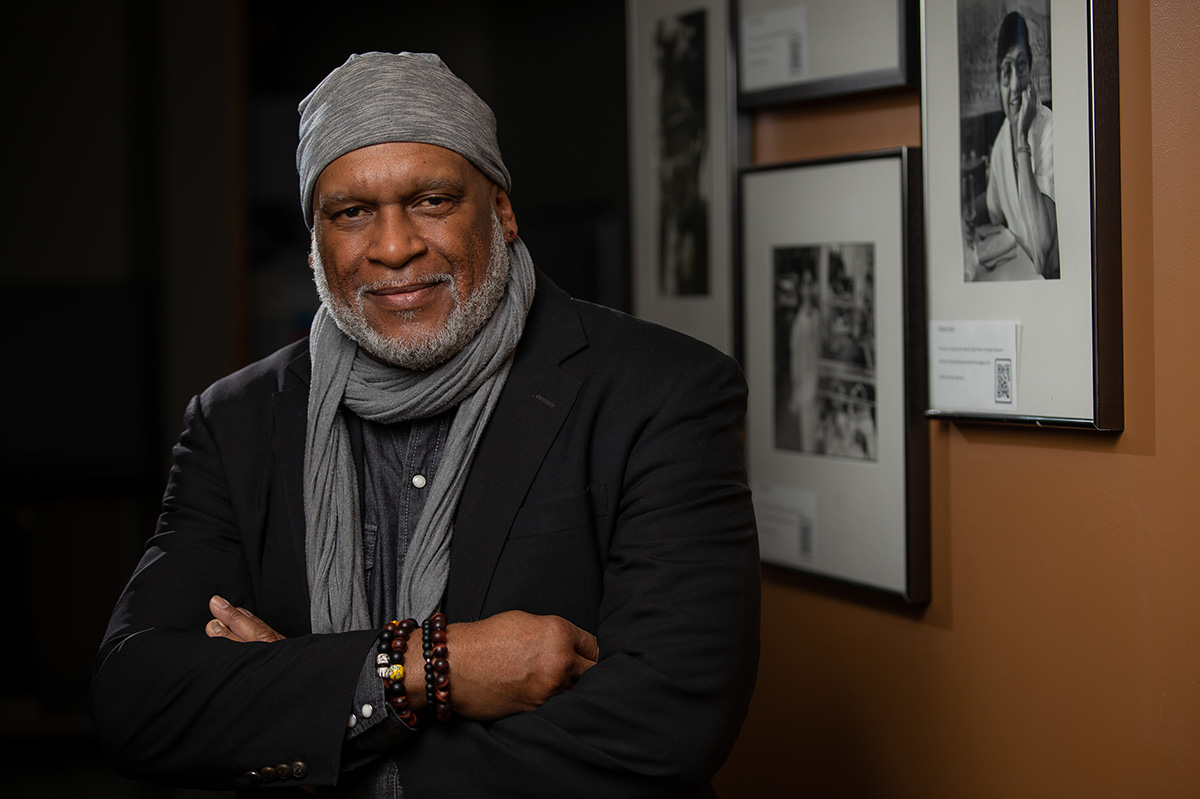 John Zeigler, director of the Egan Office of Urban Education and Community Partnerships at DePaul, has been a community organizer and activist for over 30 years. (DePaul University/Jeff Carrion)
John Zeigler, director of the Egan Office of Urban Education and Community Partnerships at DePaul, has been a community organizer and activist for over 30 years. (DePaul University/Jeff Carrion)
After over 30 years as a social worker, community organizer and activist, John Zeigler has worked in enough poor, global and local urban communities to see what the arc of justice looks like in these neighborhoods.
As director of the Egan Office of Urban Education and Community Partnerships (UECP, formerly the Egan Urban Center) at DePaul since 2008, Zeigler has also experienced the ways large institutions like DePaul can successfully engage with communities and bring their resources to bear. Through authentic relationships and critical dialogue with community members about the big-picture problems that cause persistent poverty, Zeigler keeps DePaul and UECP at the table with others as all ask what must be done.
"I started my career as a social worker on the southwest side of Chicago in the Englewood community. I soon realized that the individual traumas that I was dealing with were seeded in much larger systemic issues that disproportionately impacted under-resourced communities," Zeigler says. "Early on, I felt like the little Dutch boy with his finger in the dam, thinking that I've solved a problem but only to realize that water is still coming out in other places, and the problem is more complex."
It was with this realization that Zeigler began to develop programs that were culturally specific and looked at the community as a valued asset. One of his first efforts was to establish the youth community development initiative Connextions, designed to develop adolescents into conscious community builders. For more than a dozen years, Connextions brought students from Chicago's south and west sides to West Africa, where they went through a rite-of-passage process and then carried those experiences home to their own communities.
Through this work, Zeigler came to see that the elders and others in the community were his best teachers and mentors. "I learned so much from the disgruntled youth, local pastors, grass-roots leaders, small business owners and big momma on the porch," he says. And with every unique connection he made, he had a deeper connection with the community overall.
Zeigler's relationship with DePaul began in 2005, when Jerry Watson, community coordinator for the Egan Urban Center, asked Zeigler to join a research team in the North Lawndale and Austin community. "The project was an important experience that let me take a step back and start to look at why this was happening or how this person or that neighborhood got to this point in the first place," Zeigler recalls. Most importantly, he saw how community voices could impact policy.
The experience also allowed him to begin to understand what he calls "The Egan Way." Monsignor John Joseph Egan, UECP's namesake, was a Catholic priest who battled for social justice in Chicago, making him one of the city's most influential religious leaders. He bookended his work in Chicago as a student at DePaul, first, and then as the head of the Office of Community Affairs.
"Egan didn't impose his will in the communities he was in," Zeigler says. "He simply made it so he had a seat at the kitchen table, or the table in the church basement, and could ask questions, listen and connect people to resources and each other."
Zeigler notes that how UECP conducts itself at the table also matters. "We are not the experts in that space; the community members are. At least, they bring as much experience and expertise as anybody else does," he says.
For all that he has done, Zeigler also keeps UECP moving forward. UECP has developed a community engagement certificate, and it has trained members of the Chicago Police Department, Chicago Public Schools, Chicago Park District and others through a curriculum on engaging the community. UECP also continues to have a presence in Chicago communities and in public and Catholic schools, offering early childhood, mentoring and tutoring, and project-based learning opportunities.
Zeigler is also actively engaged in the Inside/Out program, which allows DePaul students to take classes with inmates at state correctional facilities, and the Institute for Restorative Educational Engagement (with DePaul's Steans Center), which works with formerly incarcerated and re-entering DePaul students.
Zeigler continues to strategize with global and local grass-roots leaders in their development with Chicago's Goldin Institute. He also believes in the power of building effective social networks and creating opportunities for community partners to share their practices, promising ideas and challenges.
While director of the Egan Urban Center he was awarded the Gandhi, King, Ikeda Award by Morehouse College in Atlanta. He also received the Peace Corps' Loret Miller Ruppe Award for Outstanding Community Service and the Young Chicago Authors' Wallace Douglas Distinguished Service Award, among many other awards and fellowships.
As one of the 125 Faces of DePaul during its 125th-anniversary year, Zeigler said he is humbled.
"I recognize the fact that I stand on the shoulders of the people before me: Fr. Egan, former Egan directors Liz Hollander and Michael Bennett," he adds. "I'm a part of a collective and being one of the faces allows me to consider that community of people."
Most certainly a community that will persist and keep DePaul and UECP at the table, connecting the dots while considering what must be done.